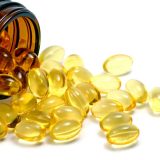Plenty of research has demonstrated the physical and emotional benefits of the sexual activity inherent to a monogamous relationship. However, a significant percentage of adults do not have a safe, sexual partner. According to a previous U.S. Census, 95.7 million Americans aged 15 and over identified as unmarried or single. It is easy to assume that these individuals are disadvantaged when it comes to the physical benefits of being in an adult, romantic relationship. Fortunately, you don’t need a partner to profit from sex’s cardiovascular advantages.
Masturbation
Shrouded with a negative connotation by some cultures and religions, masturbation is the self-stimulation of the genitals to achieve sexual arousal and pleasure. Because of the guilt and shame commonly linked to masturbation, it is seldom discussed in the health arena. Despite it being a relatively taboo topic, masturbation is a very common behavior that can enhance heart health – even among those who are in a sexually active, committed relationship:
- An estimated 95 percent of males and 89 percent of females have masturbated.
- Masturbation is the first sexual act experienced by most individuals.
- In young children, masturbation is a normal part of the growing child’s exploration of his or her body.
- Most people continue to masturbate in adulthood, and many do so throughout their lives.
Heart Disease
Heart disease describes any disorder of the cardiovascular system (the heart and blood vessels) that affects the heart’s ability to function normally. Often the result of poor eating habits, stress and a sedentary lifestyle, heart disease has emerged as one of our nation’s top concerns. According to the U.S. Centers for Disease Control, heart disease has been the leading cause of death in the United States for the past 80 years and affects approximately 61 million Americans.
In hopes of reducing its incidence and corresponding mortality, our healthcare system has turned to practicing cardiovascular disease prevention. While cardiovascular disease cannot be prevented in every case, the National Institutes of Health indicates that the following seven measures may help to reduce its risk:
- Do not smoke.
- See your healthcare provider regularly.
- Eat a well-balanced, low-fat, low-cholesterol diet.
- Exercise regularly.
- Control blood pressure.
- Maintain weight appropriate for your frame and build.
- Manage stress through relaxation.
Since two common cardiovascular disease-preventing goals include lowering blood pressure and managing stress through relaxation, most healthcare providers would advise their patients to engage in activities that accomplish these two feats.
Masturbation for Heart Health
Sexual health advocates maintain a wide range of physical and emotional benefits from solo sex. When considering the cardiovascular system, masturbation’s ability to lower blood pressure and enhance relaxation make it a top choice for heart health.
- Blood Pressure – The force of blood flowing through the arteries, blood pressure poses a risk to the cardiovascular system when it is too high. Activities that help blood to flow more easily invariably reduce its pressure. Considered a light form of exercise, masturbation that leads to orgasm exerts this effect. Although it may only burn off a few calories, achieving an orgasm relieves muscle tension by causing muscles to tense and then release. An orgasm’s tension then release of muscles helps improve blood flow throughout the body – thus reducing blood pressure.
- Enhance Relaxation – Stress has a direct effect on the cardiovascular system by constricting blood vessels and raising heart rate. From a chemical perspective, endorphins are natural compounds produced by the body that relieve stress by giving us a feeling of well-being and elation. Because sexual stimulation and orgasm both cause the body to release endorphins, masturbation has a relaxing impact on the cardiovascular system.
An ideal way to practice cardiovascular wellness, anyone who does not suffer from masturbation-associated shame or guilt can indulge in solo sex (as long as it is appropriate and not harmful). As soon as our society lets go of the attitude that touching oneself is forbidden, people can single-handedly lower their blood pressure and achieve relaxation whether they are in a loving, committed relationship or not.




